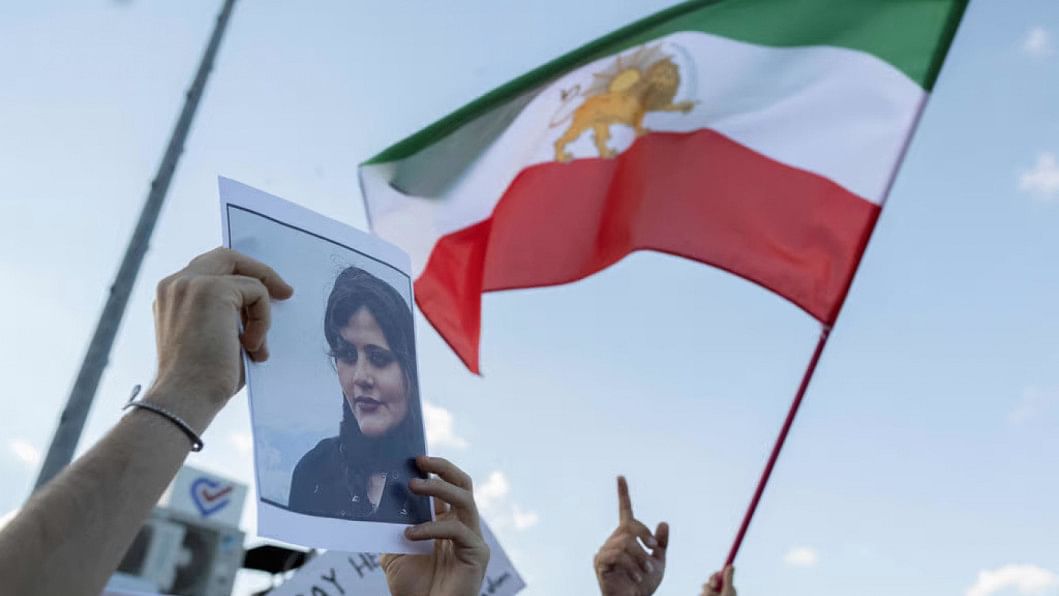Media should be careful not to report in Iran regime’s favour

"Iran Abolishes Morality Police After Months of Protests" was the title of an article published by The New York Times this week. It was one of the news outlets to have broken this "news", after which, almost every news portal in every country, including ours, decided to regurgitate it without investigating the truth for themselves. No, the notorious Morality Police that is held responsible for the death of 22-year-old Kurdish-Iranian Mahsa Amini for showing a few strands of her hair in public, which in turn led to nationwide protests and hundreds of more deaths, has NOT been disbanded.
Where did this information come from in the first place? Iran's Attorney General Mohammad Jafar Montazeri has claimed that "the Morality Police has nothing to do with the judiciary system and has been shut down from the same source that created it in the past. Of course, the judiciary system will continue its surveillance of social behaviours across society." Note that this was an impromptu response to a question at a conference, and not a formal announcement. The only thing that is clear from his words is that Montazeri is not in charge of the regime's Morality Police.
Now, let us understand what surveillance of social behaviours means. The regime's Gasht-e-Ershad (Morality Police or Guidance Patrol) may no longer be patrolling the streets as much as they used to, and the reason is that the Artesh (military), the Sepah (Islamic Revolutionary Guard Corps) and the Basij (paramilitary militia) – all of whom are heavily armed – are on the streets, cracking down on anti-government demonstrations. That being said, Iran is utilising surveillance technology that uses facial recognition to hunt down the rebel women who disobey the mandatory hijab law and then later arrest them from their homes. Essentially, the work of the Morality Police continues unabated; only now, technology is employed to further the process.
Now, let's say the Morality Police has been shut down (which it hasn't). But does the mandatory hijab law still exist? If the answer to that question is yes (and it is), then the logical conclusion is that the law will continue to be implemented or enforced. If the law exists on paper, there will be a branch of the Faraja (law enforcement) who will be responsible for enforcing that law, irrespective of whether or not the Morality Police (one of the branches of the Faraja) is suspended.
Moreover, any reform from the current regime, such as the amendment of the mandatory hijab law, will fall short. It must be understood that the current revolution in Iran is not an anti-hijab movement; it is an anti-theocracy uprising that seeks democracy and freedom of choice. The Islamic Republic of Iran is a failed state – it has failed women, men, workers, ethnic and religious minorities, and of course, the economy.
It is high time for reporters to do the bare minimum and not take away from the truth in the hopes of a sensational story/headline. Whether deliberately or unintentionally, news agencies have been the bearers of distraction propaganda by diverting people (perhaps well-wishers who vow solidarity with the people of Iran) from at least two things that need more coverage.

One is the nationwide economic strikes that began on December 5 and will culminate on December 7. According to the UK-based Iran International, businesses in over 40 cities are on strike, with 90 percent of retailers shutting their doors "in a move that will be costly for the already beleaguered economy." This should also act as further evidence to the fact that the current revolution is not a women's only "anti-hijab" movement; rather, it is the people's revolution against the theocracy.
Secondly, Iran's future on the UN Women's Rights Body will be decided on December 14. Ironically, Iran is one of the 45 member-states on the UN Commission on the Status of Women. The 54-member UN Economic and Social Council will vote on whether or not Iran will be ousted from the commission for the remainder of the 2022-2026 term. The UN Watch has estimated that the motion to expel Iran from the commission will pass by a vote of 28 to 11, with 15 abstaining from voting.
Besides covering these news, there are of course other facts that deserve attention: more than 400 are said to have been killed, around 60 of whom were children; over 18,000 protesters have been imprisoned and charged with crimes that are punishable by death, and a few have already been sentenced to death and others (including minors) risk executions. Iran's authorities have been accused of stealing bodies of slain protesters to avoid rallies from taking place at their funerals; of raping detained protesters, including minors; and of torturing every incarcerated protester, irrespective of gender.
Against this backdrop, the media must not deflect the focus away from the revolutionists who have been dying for their cause, and they must not make the mistake of publishing propaganda that works in favour of the theocratic regime.
Noora Shamsi Bahar is a writer and translator, and a senior lecturer at the Department of English and Modern Languages in North South University (NSU).

 For all latest news, follow The Daily Star's Google News channel.
For all latest news, follow The Daily Star's Google News channel. 





Comments